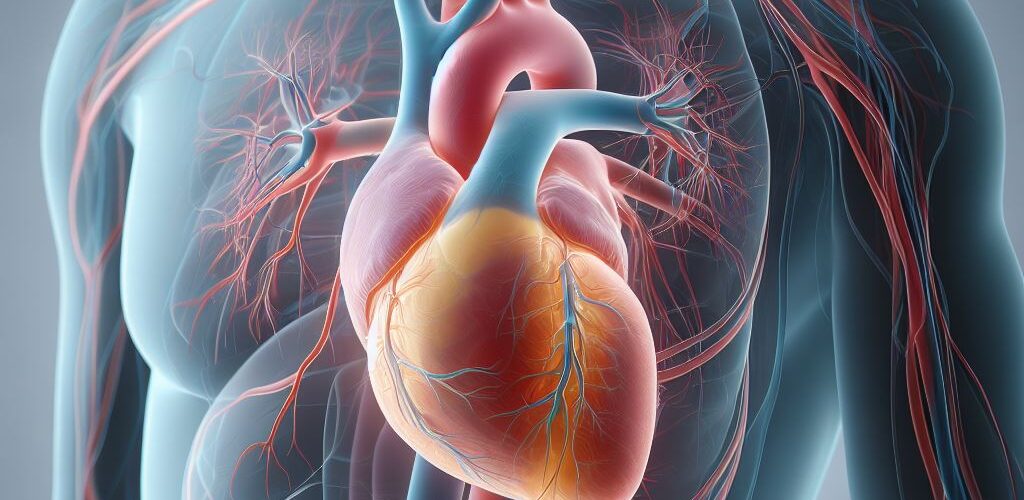News & Events
Dyspnea of Ticagrelor: the challenge and the wise decisions
- 20 October 2023
- Posted by: Mohamed Salah
- Category: Cardiology News and reviews

Ticagrelor is one of the most potent anti-platelets, especially for acute coronary syndrome patients managed with PCI and stenting. However, Ticagrelor induced dyspnea is one of the most annoying adverse effects that may disrupt patients compliance to this vital medication.
Some patients may seek re-admission shortly after PCI complaining from this dyspnea, and it may be diagnosed as decompensated heart failure or bronchial asthma exacerbation. The main mechanism of this dyspnea is ticagrelor-induced decrease in adenosine uptake, accumulating adenosine extracellularly. This increased levels of adenosine causes direct bronchospasm, and stimulate vagal c fibers in bronchial tree via activation of adenosine receptors (A1R and A2). Additionally, Ticagrelor has a direct effect via potent activation of P2Y12 receptors on neurons in bronchial tree, stimulating vagal c fibers, increasing sensation of dyspnea.
Also, Ticagrelor was implicated in aggravation of central sleep apnea via the previously explained mechanisms, and this effect is confirmed by sleep studies. So, Ticagrelor should be cautiously prescribed in people already suffering from sleep apnea or are at high risk for developing of sleep apnea (markedly obese, night time asthma, redundant oropharyngeal tissue … etc). Also, patients suffering from COPD are at a greater risk of developing this dyspnea.
In rare situations, this Ticagrelor dyspnea can be manifested in an acute stormy course
as in a case study published in 2020, and indexed in Pubmed, in which a STEMI patient on Ticagrelor developed severe dyspnea and bradycardia, chest imaging excluded pulmonary edema or congestion, and clinical data showed only diffuse wheezes, no rales.
So, a decision is made by the treating physicians that this clinical deterioration may be related to Ticagrelor adenosine-mediated bronchospasm and bradycardia and the patient was given slow IV infusion of theophylline 200 mg, and improved rapidly. However, dyspnea recurred after 2 hrs with lower intensity, consequently, IV theophylline was given q12 hrs for 3 days and completely improved.
Surprisingly, a study published in 2022, showed a correlation between atorvastatin doses lower than 80 mg and occurrence of this unique dyspnea, only 80 mg dose showed no correlation and no data available for other statins.
Regarding management of Ticagrelor-induced dyspnea, the most effective treatment is fortunately Ticagrelor discontinuation, however, this decision isn’t easy, especially when its potent substitute, Prasugrel, isn’t available. Inhaled bronchodilators especially corticosteroids might improve the condition slightly if Ticagrelor cannot be discontinued.
Regarding the common approach implemented by some cardiologists to encourage patients to increase intake of tea (due to its anti-adenosine effect), as they noticed tangible improvement of dyspnea, this approach may be hazardous as we have some evidence that some compounds in the tea (especially green tea) decrease active absorption of ticagrelor in the gut, so decrease its potency, and some researchers thinks that Ticagrelor doses might be increased in patients with high intake of tea. Additionally, according to a study published in JAHA, caffeinated beverages showed no improvement of Ticagrelor-induced dyspnea, however, the study confirmed they are safe to be consumed in patients on Ticagrelor.
Practical application
- If Ticagrelor-induced dyspnea is mild, reassure your patients and discourage them from discontinuation of Ticagrelor, especially in the first 3-6 months post-PCI, as mild dyspnea is generally self limiting, and in many cases disappears within 1-2 weeks.
- If Ticagrelor-induced dyspnea is disturbing to the patient, and 3 months have passed since PCI and stenting with newer generations of DES (Xience, Onyx resolute ..) you may de-escalate safely to Clopidogrel, as high ischaemic risk due to stent thrombosis subsides markedly after 3 months, so no necessity for ticagrelor.
- If Prasugrel is available (till the moment not available in Egypt), and not contra-indicated, it would be a rational substitute to Ticagrelor from the first day if Ticagrelor isn’t tolerated.
- Don’t advice patients to increase intake of tea to control this dyspnea, as you might lose some of the drug efficacy.
- If acutely severe dyspnea developed, IV aminophylline is a wise available choice for rapid control.
